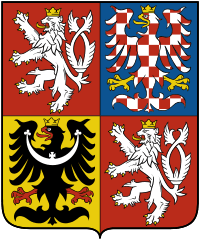National strategy of building adaptation to climate change

Published
| Region | National coverage |
|---|---|
| Title of the Programme | Biodiversity and Ecosystem Services & Environmental Monitoring and Integrated Planning Control & Adaptation to Climate Change |
| Title of the Project | National strategy of building adaptation to climate change |
| Number of the Project | --- |
| Project Promoter |
Chance for Buildings |
| Name of Local Partner(s) |
Glopolis |
| Objective of the Project |
Climate changes and their impacts are not only a question of the future - we now, already, have to face their negative manifestations. Extreme weather events are among the major problems, which manifest in the area of Central Europe now and in the future will continue to grow as expected by scientists: droughts and high temperatures in summer, frosts in winter, strong storms, wind gusts and related torrential rains and flooding. Extreme temperatures will make ensuring of thermal comfort in residential and office buildings more difficult. Thunderstorms, winds and flooding will lead to difficulties in securing the supply of energy (either heat or electricity and gas). These effects will be adversely supported by increased competition in the purchase of primary sources in the world market. It can also cause damages to parts of the buildings. In the future, it will therefore be more difficult to provide in these crisis situations the ordinary use of buildings, whether residential or administrative. The first problem will be the inability to achieve thermal comfort (risk of hypothermia or, on the other hand, of overheating the internal environment), or water supply. If the periods of bad weather get longer, the habitability of buildings may be compromised. In buildings, residents spend 85-90% of their time. To protect the population and ensure the normal functioning of society it is therefore crucial that the expected impacts of climate change on building use and building readiness to face them, are analyzed and that such adaptation measures that will mitigate the impact of these risks are suggested and implemented. Despite its importance the issue of building adaptation to climate changes has not been developed in the Czech Republic yet. The submitted project will therefore bring unique outputs that are not available to the government at this moment. It is also important to note that the savings of energy for the building operation and the smart energy supply management as one of the obvious adaptation measures have additional synergistic effects: These are also mitigation measures reducing greenhouse gas emissions and contribute to the restriction of geopolitical risks and import dependence. The aim of the project is to support the government (especially the Ministry of the Environment) and local governments (counties and cities) in the risk analysis and proposals for actions on adaptation to buildings to the climate changes, the incorporation of the proposed measures in the Strategy of adaptation to the climate change in the Czech Republic (or their later updates, if approved prior to implementation of the proposed project) and the related Action plan for it and especially the contribution to the expert discussion and thus the actual implementation of individual measures. The result of the project will be a draft national strategy for building adaptation to climate change, which will be discussed with the government and stakeholders. As partial underlying studies the following materials will be processed: a) the map of the impact of climatic changes by regions, b) the macro-economic cost-benefit study, c) case studies for two selected regions, d) a draft summary of the strategy and the summary of major recommendations. These outputs will be discussed at bilateral meetings, round tables, seminars and conferences. Ensuring the subject publicity is an inherent part of the project. The proposed project will draw on the strategy of building renovation, which was prepared by the applicant for the Ministry of Trade and Industry in accordance with the Article 4 of the Directive on energy efficiency. At the same time, the applicant discussed it with other major groups (Association of Building Entrepreneurs, Chamber of Commerce, energy companies and their associations, non-governmental organizations) during the preparation phase, to enable the modification and improvement of material to be incorporated in the official National Energy Efficiency Action Plan of the Czech Republic, which was sent in April 2014 to the European Commission (DG Energy). |
| Approved grant |
Approximately 245 283 EUR |
| Project Duration | Start date: 1st January 2015, End date: 30th April 2016 |

